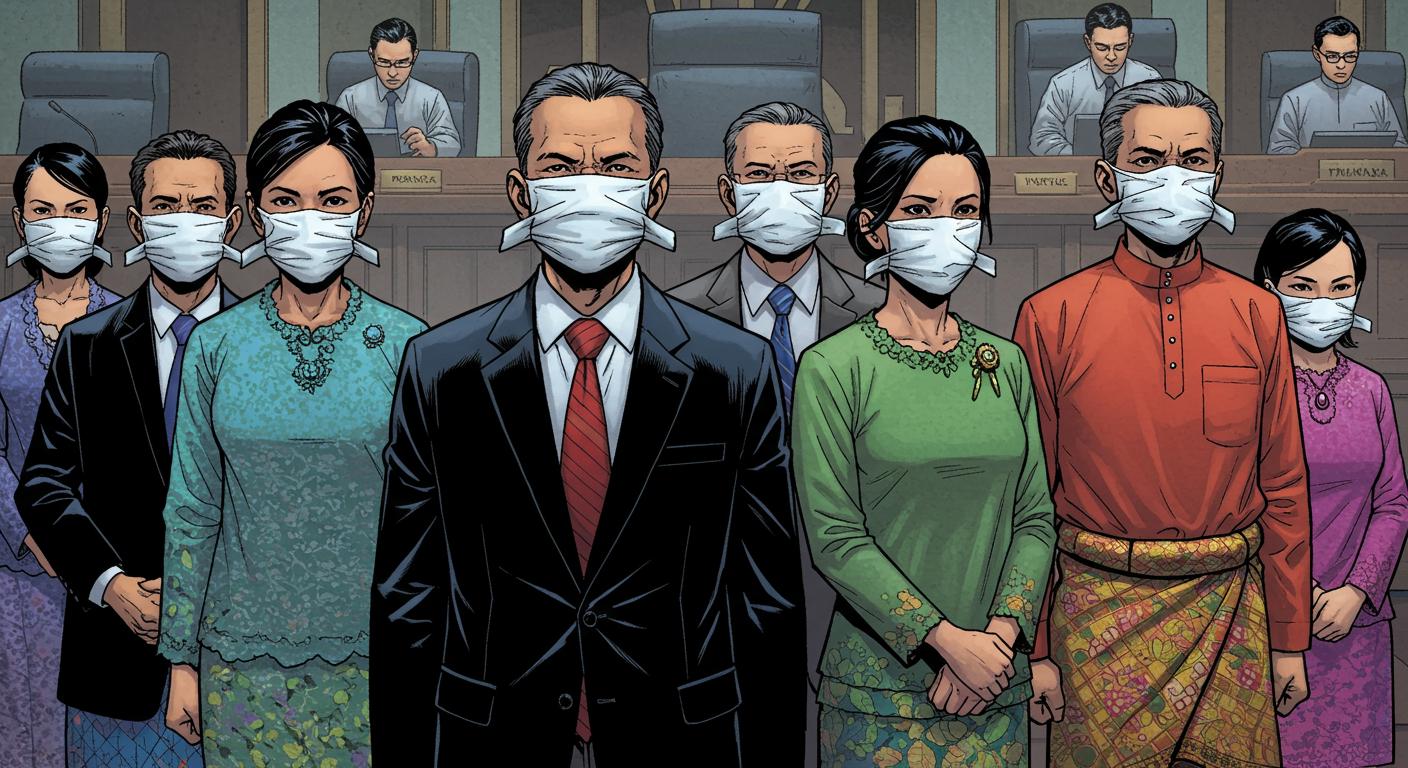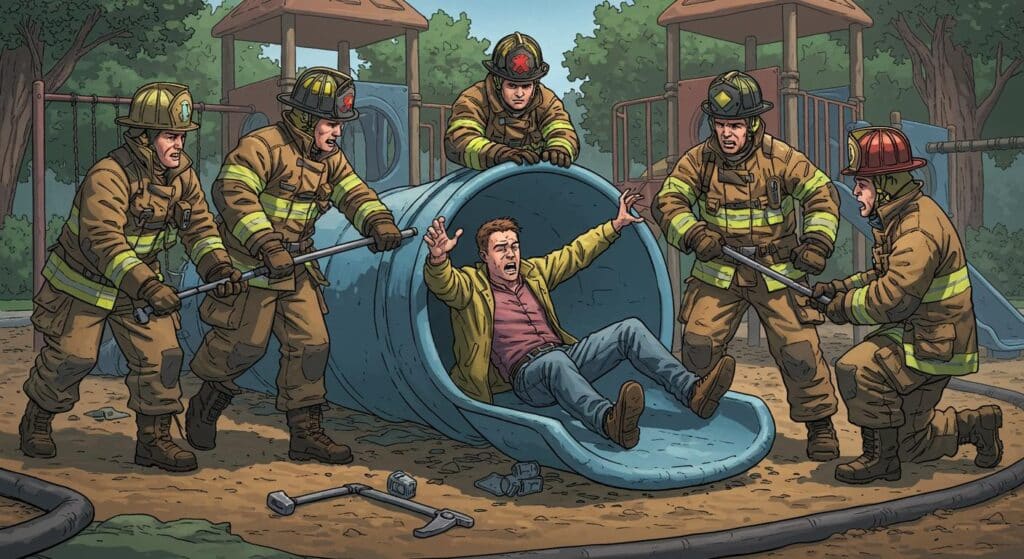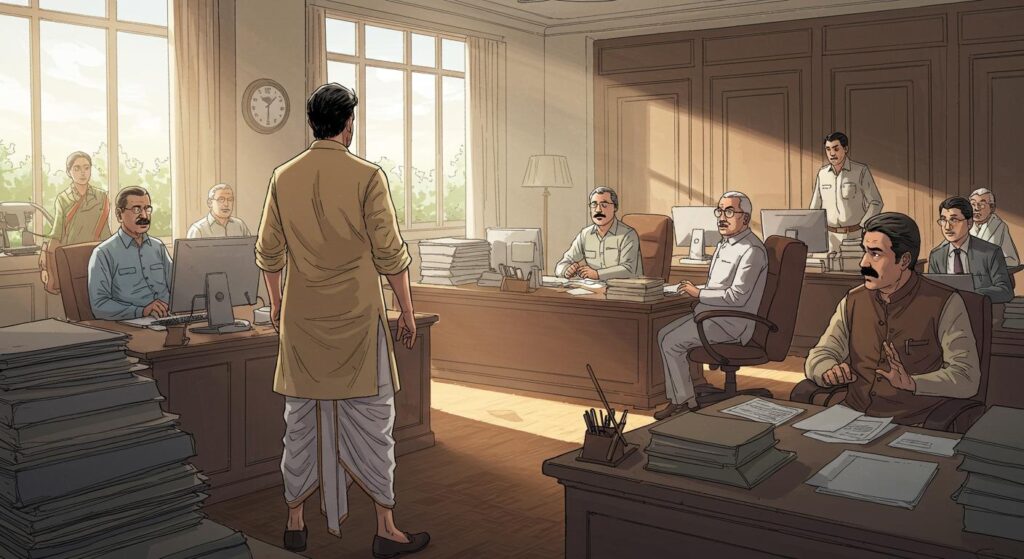It’s not every day one gets to type the phrase “sanitary pads as face masks” in the context of parliamentary protest, but then again, that’s exactly the kind of world we live in—a place where politics and performance art occasionally cross wires with a satisfying zap. As documented by World of Buzz, DAP veterans from Negeri Sembilan, Malaysia, objected to the appointment of an “outsider” as their next Senator by donning sanitary napkins on their faces. Not exactly the imagery one typically associates with legislative disputes—yet perhaps that’s precisely the point. How often does a protest actually absorb the spotlight this literally?
Protest in Thick Symbolism
World of Buzz reports that Vincent Wu Him Ven, a politician from Johor, is set to assume the role of Senator representing Negeri Sembilan—a substitution the local DAP Veterans Club sees as an affront to their state’s autonomy. During a performance-heavy demonstration led by Lee Kong Hin, members wore sanitary pads as face masks to get their message across. According to the outlet, Lee explained the symbolism this way: the sanitary pad stands for “thickness, impermeability, and privacy.” In Lee’s words, this mirrors how the committee members “are afraid to speak up and always remain silent.”
The outlet also notes that chants of “Reject outsiders! Who is he (Wu)?” rang out alongside the spectacle, underlining not just the visual pun but a call for vocal, local representation. Is this over the top? Perhaps. Does it get people talking? Absolutely.
The Local Versus Outsider Tension
As detailed in World of Buzz’s reporting, Lee didn’t hold back in voicing frustration with party leadership. He questioned, “Negeri Sembilan has 120 branches and tens of thousands of party members – is there no one qualified? Are we all dead? This is an insult to Negeri Sembilan DAP members.” Wu, the soon-to-be senator, may hold a Datuk title granted by Negeri Sembilan just two years ago, but that’s apparently not enough to earn him local credibility in the eyes of protestors.
Describing the atmosphere, the outlet documents how Lee and his fellow veterans insisted the state has no shortage of qualified lawyers, doctors, entrepreneurs, and other professionals to fill the seat. Their protest extends beyond mere symbolism—they demanded the state DAP committee withdraw Wu’s appointment and select a local candidate instead. It’s an almost universal dispute, now made memorable through its unexpected choice of props: homegrown members overlooked for a candidate from across state lines, all dramatized by sanitary napkins pressed into service as visual critique.
Is there something inherently more persuasive about making your point with an object that people usually avoid talking about in public? There’s certainly more memorability, if nothing else.
A Performance Art of Dissent
World of Buzz highlights not just the visual oddity but the clear purpose: to call out “covering of mouths” and encourage speaking up. In a world where standard-issue picket signs and hashtags sometimes blur into digital background noise, this protest achieved a certain dreary distinction. Would any run-of-the-mill “No Outsider Senators” poster have made it past the regional news cycle?
The use of tangible, everyday objects recast into protest iconography is a time-tested protest tactic, but the choice of sanitary pads—an unlikely, perhaps intentionally taboo symbol—demands attention. One imagines the planning session: just how many options did they consider before landing squarely in the personal hygiene aisle?
Reflecting on Absorbent Politics
If nothing else, the DAP veterans managed to draw attention—a currency not always easy to come by in an age of fast-scroll news feeds. As World of Buzz reiterates, the spectacle ignited a swirl of discussion not just about representation but about what lengths people will go to be heard. Is this a high-water mark for creative protest, or will the next act double down on physical symbolism?
Amid the layers of performance and earnest grievance, a larger question lingers: how do you make sure communities see themselves in their representatives—and will any amount of inventive protest ever truly bridge that gap? Whether or not the sanitary pad masks influenced party decisions, they’ve certainly left people with an indelible image, and maybe a reminder that even the thickest silence is sometimes waiting to be pulled aside.







